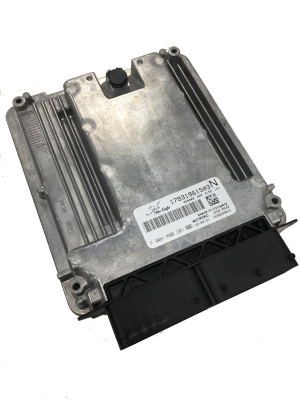GCM196
GCM-1793-196-1503 (GCM196)
The GCM196 is a general-purpose control module. The module has three CAN buses, making it suitable for system supervisory applications in which communication with many system components is necessary. The extensive number of inputs and outputs, amount of memory, and processing capability make this module suitable for a wide variety of general-purpose applications. The dual processors make this module suitable for safety critical applications where redundant processing is required.
The Infineon Tricore TC1793 CPU inside the GCM196 is a highly capable computing platform, capable of handling highly complex control algorithms and processor loads.
The GCM196 is part of a family of rugged, automotive-grade production controllers that use a software development process based on MATLAB/Simulink, known as Raptor-Dev. Raptor-Dev significantly speeds up algorithm development by using automatic code generation. In addition, developers can quickly test application software on their PCs with a built-in onscreen PC simulation.
Datasheets
GCM-1793-196-1503
ECM-1793-196-1503
Pins and Crimping
Due to the high number of pins on the GCM196, the pins need to be crimped in a very specific fashion. To reduce problems while attempting to pin the GCM196 please refer to the following picture:
Crimping Tool
Click here to purchase your crimper today.
Please note, TOOL-CON-010-00 is for prototyping on the ECM/GCM196 and is not recommended for production harness manufacturing.
Compiler
Hightec-DP-TC - Hightec Tricore Development Platform Compiler (Node-Lock)
Hightec TriCore Development Platform (Node-locked) is required for Raptor GCM/ECM196 and it includes a C/C++ Compiler, Assembler, Linker/Locator, PCP-C Compiler, Eclipse IDE, Standard libraries.
Click here to purchase your compiler today.
Frequently Asked Questions (FAQ)
Q: Does New Eagle have a specification for the boot up time for the GCM196 (i.e., time required to execute the first foreground loop from application of 12V on wake-up pin)?
A: Yes, the foreground loops approximately 190ms after the wake-pin is enabled.
Q: What is the weight of the 196?
A: 2.2 lbs or 1000 grams
Q: What is the Environment Rating of the 196?
A: IP6K9K
Q: There is approximately 13 seconds delay for the controller to go to sleep once WAKE_INPUT1 pin is low. Is this adjustable?
A: Yes, the Bosch 196-pin module has a timer (SyC_tiPostDrvMax_C) that needs to be serviced by the key-switch (WAKE_INPUT1).
One way to change SyC_tiPostDrvMax_C:
Using a 196-pin raptor module in Raptor-Cal, there is a calibration called “SyC_tiPostDrvMax_C” located under System/Platform:
Transfer Calibrations and select .rpg to .rpg. Change the calibration by using Set Value. Then save to an *.rpg file.
Q: Why does grounding K014 cause the module to not flash?
A: The module has a boot control which can be configured to make the ECU a master or a slave in a multi-ECU environment. After configuration, it double checks with the input at pin K014. If nothing comes on the pin, it treats itself as master. If it is grounded, the boot control treats it as slave. To flash a slave, the protocol used was KWP2000, which is not supported by our Raptor-Tools.
Q: How much current does the module sink when hibernating? How much does it sink when not hibernating?
A: When WAKE_INPUT1 is low (module is hibernating), the module draws about 50uA. When WAKE_INPUT1 is high (module is on), it draws about 550mA.
Q: What is the material of the 196 mounting assembly?
A: Mild Carbon Steel (A36) and the mounts are zinc coated
Q: Where is the boot recovery process for the ECM and GCM196?
A: See the recovery procedure in the ECU datasheet.
Webstore
196-Pin General Control Module

